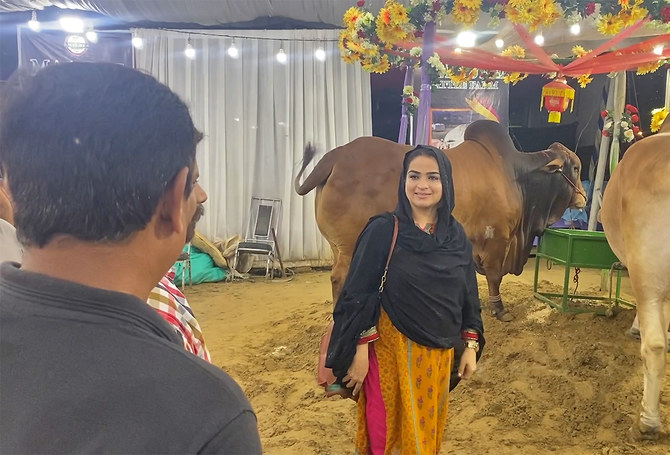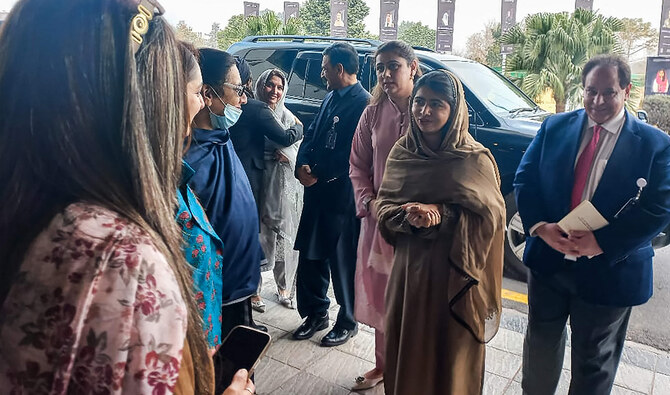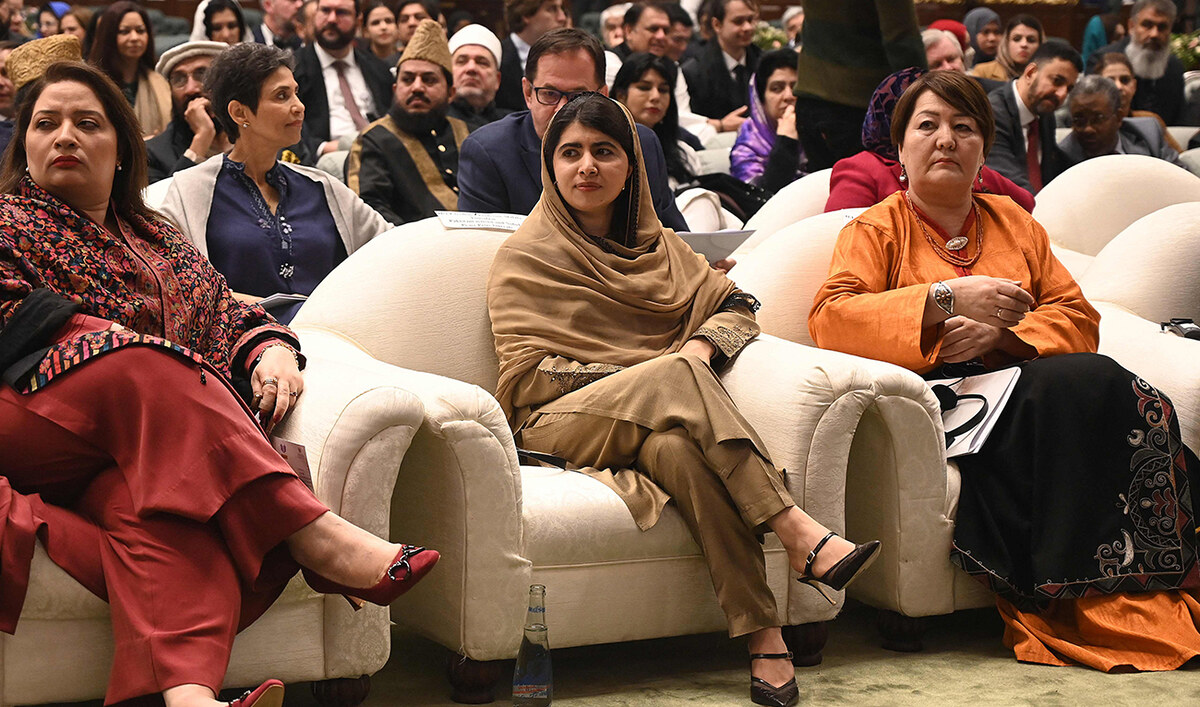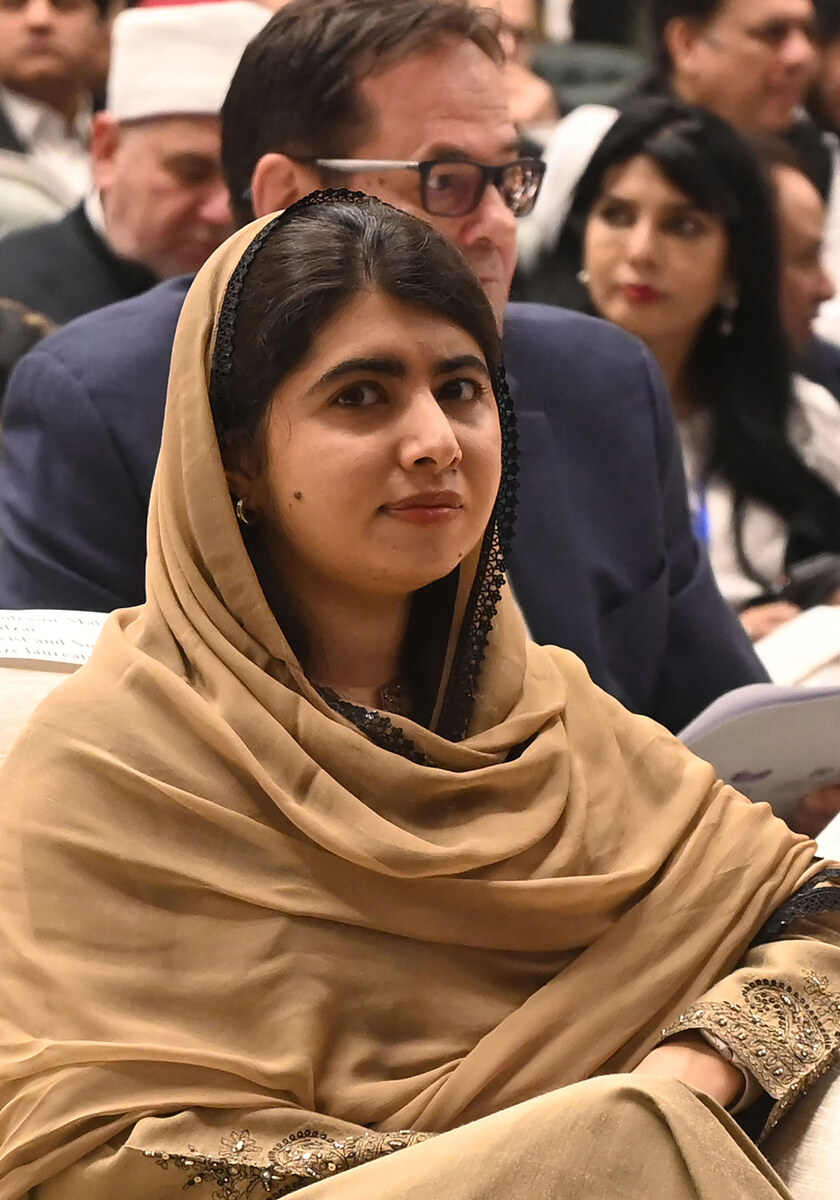KARACHI: Sidra Khan spent the days of Eid Al-Adha this year like millions of other Pakistani women: cooking up a storm of traditional holiday dishes for her immediate family and larger community.
But her work in the kitchen has not kept Khan tethered only to household responsibility, and out of the workforce. Until very late on Saturday night, the eve of Eid, she was one of only two women among over 40,000 traders selling sacrificial animals at the Karachi Cattle Market.
Every year, Pakistan’s southern port city of Karachi hosts the country’s largest livestock fair, spread over 2,000 acres of land, with 425,000 animals for sale.
Khan, 37, was a rarity among the thousands of male traders this year.
Having hovered around 10 percent for over 20 years, female labor force participation in urban Pakistan is among the lowest in the world, according to the World Bank.
To combat this, Khan had special message for other women ahead of the Eid holiday.
“Don’t spend your whole time shopping for Eid only or at home,” she told Arab News, advising women to put their savings to good use during the Eid Al-Adha season by investing in sacrificial animals and selling them through an experienced trader.
“If you sell two animals a season, it can cover your shopping expenses,” she said, smiling. “Ladies should come forward, do it, even if at a small scale.”
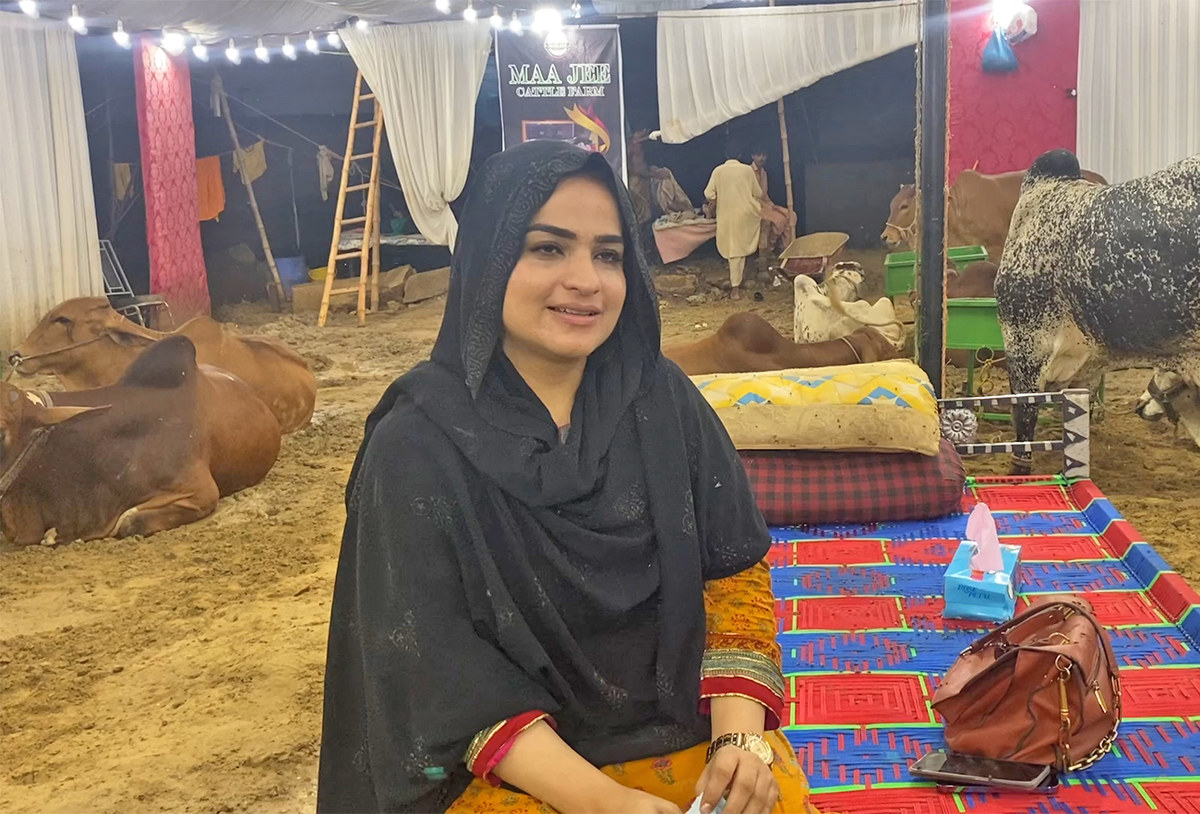
A woman cattle trader Sidra Khan speaks to Arab News in Karachi, Pakistan, on July 4, 2022. (AN Photo)
After graduating from Karachi University in 2012, Khan landed a job with Pakistan International Airlines (PIA) as a member of the cabin crew. She worked there for six years but quit in 2018 after getting married, as many Pakistani women do, when her husband told her she didn’t need to earn a living.
“Then I thought: I should do my own business,” Khan said.
Trading in cattle proved to be a natural choice for Khan, since her maternal grandfather had a business slaughtering cattle in Swabi city in Pakistan’s northwestern Khyber Pakhtunkhwa province.
“This is in [my] blood,” Khan said.
Despite that, however, the cattle business was gruelling, Khan said, who has to regularly visit cattle markets in southern Punjab’s Multan and Bahawalpur cities and in Mirpurkhas and Dadu in Pakistan’s southern Sindh province, for procurement purposes. The searing heat, especially during summers, and the male-dominated environments are a challenge but the trader said she tried to keep her focus solely on work.
“You cannot do work by becoming a shameplant,” she said with a laugh, referring to a plant famous for its sensitivity to touch, its leaves folding inward and drooping when touched or shaken.
In four years, Khan has managed to set up a successful cattle business, leading a team of 15 men in the purchase, marketing and trading departments.
This is the first year, however, that she set up a stall at the Karachi livestock market, where Khan described being mocked by her male colleagues and having to face a range of other issues as a woman seller.
“But I don’t get annoyed,” she said. “I explain it to them, I make them understand that there is nothing that ladies cannot do. I can do this. I have the courage.”
Khan said she was also a better planner and supervisor than many of her male colleagues.
“I think I am doing it better than the men,” Khan said with a glint in her eye, saying that she been trading cattle round the year, providing them to slaughterhouses, offices and seminaries, and facilitating families who lived abroad.
“Those who are out of the country, they trust in us from abroad, and on their behalf we have to sacrifice the animals and distribute among the poor in a proper way,” the trader explained. “And then we provide NGOs and seminaries with sacrificial animals also in large quantities.”
In the future, Khan said she wanted to open her own slaughterhouse but her biggest goal was to bring more women into the cattle business.
“I want to bring women to this field so, I was thinking of designing some classes,” she said.
“It is a good field and I’m available for any help [for other women], may it be in the form of sharing an experience or teaching them,” she said. “No matter what perspective you look from, women are not inferior in anything and to anyone. If they want to do something, they can achieve a lot.”
Managing her business efficiently was doubly important for Khan, she said, as she needed to save time for her children. Her husband passed away last year from the coronavirus.
“When I have free time, the entire time belongs to the children, to my home,” she said. “On the third day of Eid [Tuesday], I will leave for a vacation with my kids for a week or ten days and switch off my phone.”


